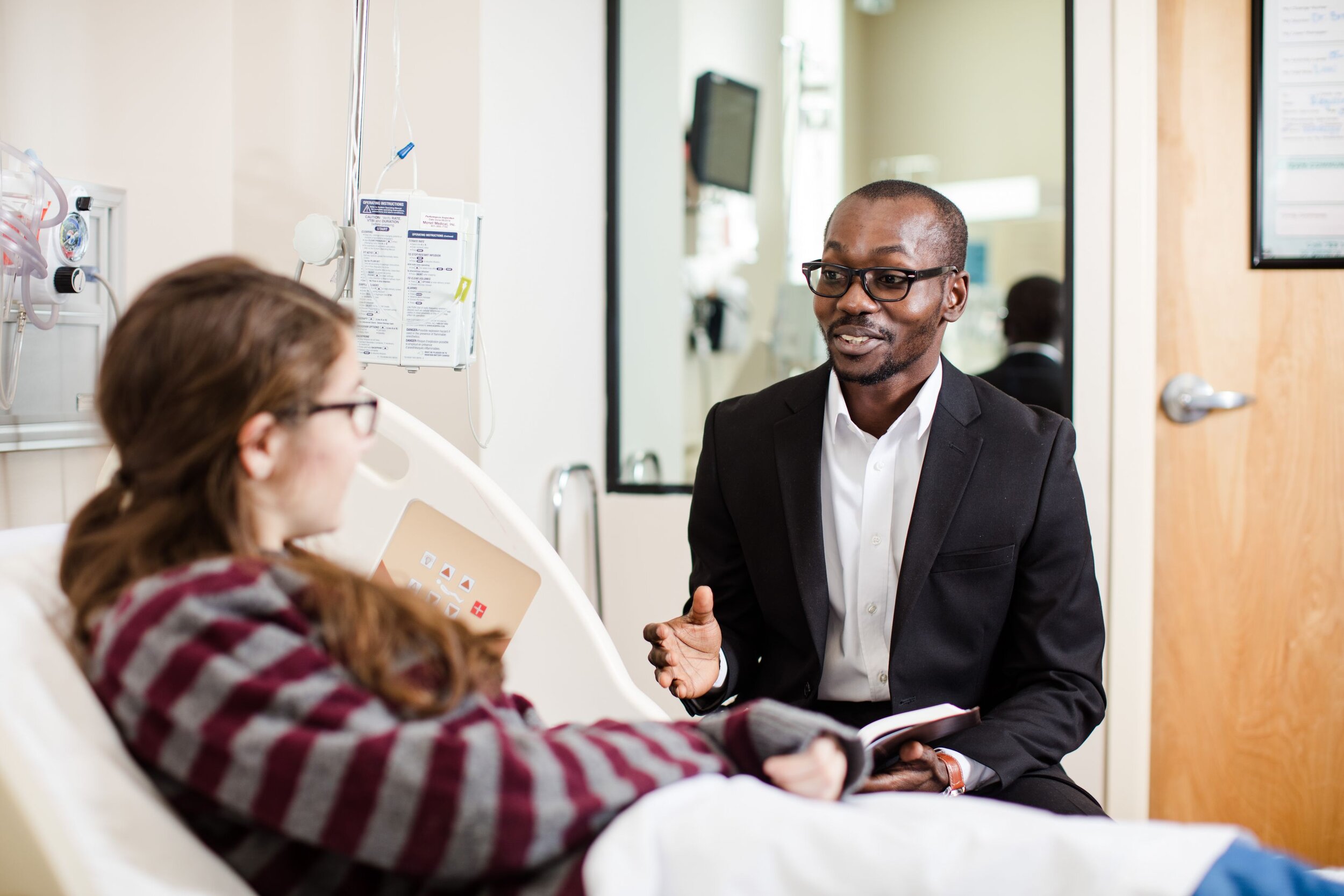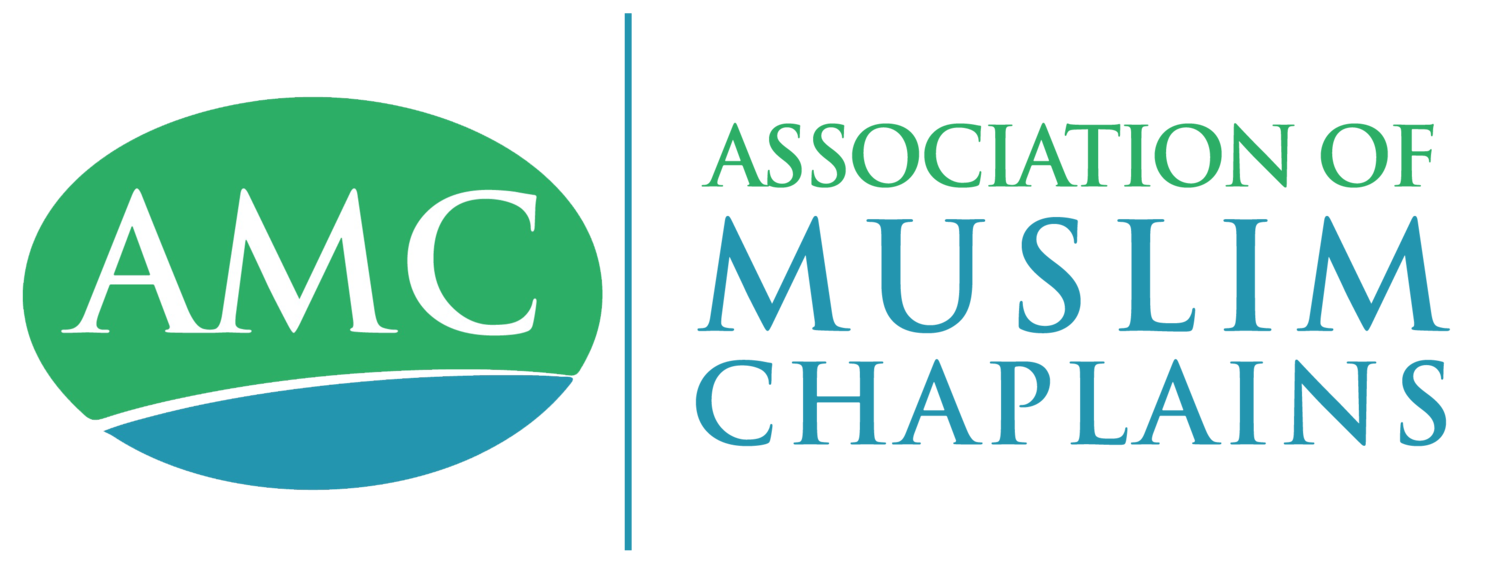
Healthcare Chaplaincy
“God, the Exalted and Glorious, would say on the Day of Resurrection: ‘O son of Adam, I was sick but you did not visit Me. He would say: O my Lord; how could I visit You whereas You are the Lord of the worlds? Thereupon He would say: Didn’t you know that such and such servant of Mine was sick but you did not visit him and were you not aware of this that if you had visited him, you would have found Me by him.”
(Muslim, 4661)
The Muslim Healthcare chaplain, like all health care chaplains, works to meet the spiritual needs of patients, their loved ones, and institutional staff in diverse health care institutions including hospitals, community health centers, and post traumatic care settings. In these institutions, chaplains are often involved in a multitude of ways. First and foremost, they serve as a compassionate presence for those with spiritual needs within their institution regardless of their religious affiliation.
Chaplains are an integral part of the multidisciplinary team in a healthcare setting. As such, they may round with doctors, place notes in patient charts, attend family meetings to discuss end of life care, work with art therapists to develop spiritually infused projects, provide cultural information to social workers, and serve on institutional ethics committees that examine difficult questions around the continuation of care.
Chaplains play an important role in these settings helping individuals to make meaning of their medical journeys, accept transitions in life and sometimes into death, and advocate for themselves. Chaplains are people with whom patients can share concerns, fears, and sadness they may not want to share with others. Depending on the placement of a chaplain, such as oncology chaplains, they may be involved in long-term relationships with patients, or they may only see people once such as in the emergency room.
Perhaps more so in hospital chaplaincy than other forms of institutional chaplaincy, Muslims chaplains often spend substantial time in their early journey discerning their own theological boundaries as they relate to providing care for others, particularly around rituals. For example, chaplains explore how they will respond when a Christian family asks for a Baptism to be performed for their dying baby, how to navigate Prayers of Commendation at the time of death, and how to navigate cross gender physical contact when a dying patient’s loved one seeks a hug.
Muslim chaplains may also facilitate jummah (worship service) and daily prayers in their institution. These gatherings can be important places to connect with staff and visit loved ones.
Requirements and Education
Hospitals increasingly seek chaplains who are board-certified. Among other things, board certification requires a chaplain:
to hold an M.Div. (or its equivalent)
a minimum of four units of Clinical Pastoral Education
1,600 additional hours of work and endorsement.
Given the shortage of Muslims with such training, institutions with large Muslim patient populations will sometimes make accommodation for those with less training, but AMC encourages Muslim chaplains in such roles to continue to work towards Board Certification. For those hired without an M.Div. with a chaplaincy focus, AMC recommends additional coursework in Muslim mental health, pastoral care, counseling, and interfaith/intrafaith engagement.


